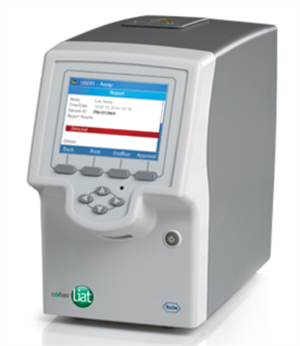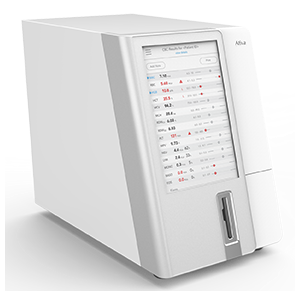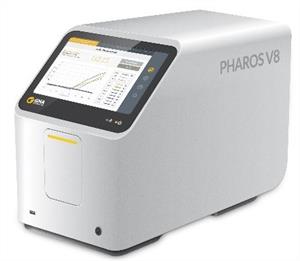The American Association for Clinical Chemistry (AACC) hosted its annual scientific meeting from July 29 to August 2, 2018. An estimated 20,000 attendees walked through the doors of the McCormick Place Convention Center in Chicago, Illinois, to learn about cutting-edge technologies and new product offerings related to the field of biotech product development.
Representing Simplexity Product Development were Doug Harriman (CTO), Lisa Coyne (Director of Business Development), and myself (Director of the Bay Area Office). In recent years, Simplexity has been expanding its capabilities in biotech instrumentation, and AACC gave us a first-hand look at cutting-edge technologies and new product offerings. The market leaders had impressive booths showcasing their latest diagnostic solutions, from flow cytometers to hemoglobin A1C analyzers for diabetes. We were also excited to talk to some outstanding start-ups, and even made time to meet with a few of our past and current clients who were exhibiting.

Image: Gabriel Aldaz, Lisa, Coyne, Doug Harriman
One of the most interesting trends evident at AACC is the continuing paradigm shift in healthcare delivery, extending the reach of diagnostic systems from the laboratory setting to the doctor’s office and even the home. This point-of-care testing (POCT) involves the use of portable instruments and promises rapid detection of targets, which in turn facilitates better diagnosis, shorter time-to-treatment, and more regular monitoring.

Image: FDA
A term that is often associated with POCT is “CLIA-waived.” The Clinical Laboratory Improvement Amendments (CLIA) include waived tests, which are laboratory procedures that are so simple and accurate that it is unlikely that a methodology would be performed incorrectly. If a mistake did occur, it is also a requirement that the procedure would pose no reasonable risk of harm to a patient. CLIA-waived instruments can even be cleared by the FDA for home use.
One example of a CLIA-waived POCT is the benchtop Cobas Liat device from Roche Diagnostics, which can be used for the detection of the influenza A, B, and Strep A viruses. Cobas Liat is a molecular diagnostic test utilizing real-time polymerase chain reaction (PCR) technology. The system includes a disposable, proprietary assay tube containing a set of chemical reagents. The sample, collected from a nasopharyngeal swab, is mixed with the reagents in a prescribed sequence, while pressure and temperature are controlled on each of the segments. Accurate results are available in under 20 minutes.

Image: Roche Cobas Liat
Interestingly, this year’s AACC Disruptive Technology Award was a competition held to recognize diagnostic developers at the forefront of POCT. Forty-two applicant companies were evaluated on the science behind their novel technologies and their potential impact on patient care. The three finalists – Ativa Medical, Two Pore Guys, and GNA Biosolutions – were selected to pitch their products.
Ativa Medical presented a fluid-processing engine integrated into a low-cost, disposable card that could enable clinics to obtain routine test results at the patient’s bedside. Two Pore Guys presented a diagnostic device that uses solid-state nanopores to detect an assortment of molecules, including proteins, drugs, DNA, and RNA. However, GNA Biosolutions took top honors for its molecular diagnostic system, pulse-controlled amplification (PCA), which accelerates nucleic acid amplification. PCA could make it easier to identify individuals infected with dangerous pathogens in regions without access to hospital laboratories.
 |
 |
 |
| Image: Ativa Medical – MicroLAB | Image: Two Pore Guys | Image: GNA Biosolutions |
In conclusion, many of the tests that require bulky laboratory equipment will be POCT soon, thanks to advances in technology, new therapeutic options, and new care models. We look forward to seeing these advancements at AACC 2019 and to engage with new clients in the biotech instrumentation space who are seeking an outsourcing partner.
To learn more about Simplexity’s capabilities for biotech product development, download our free brochure.

